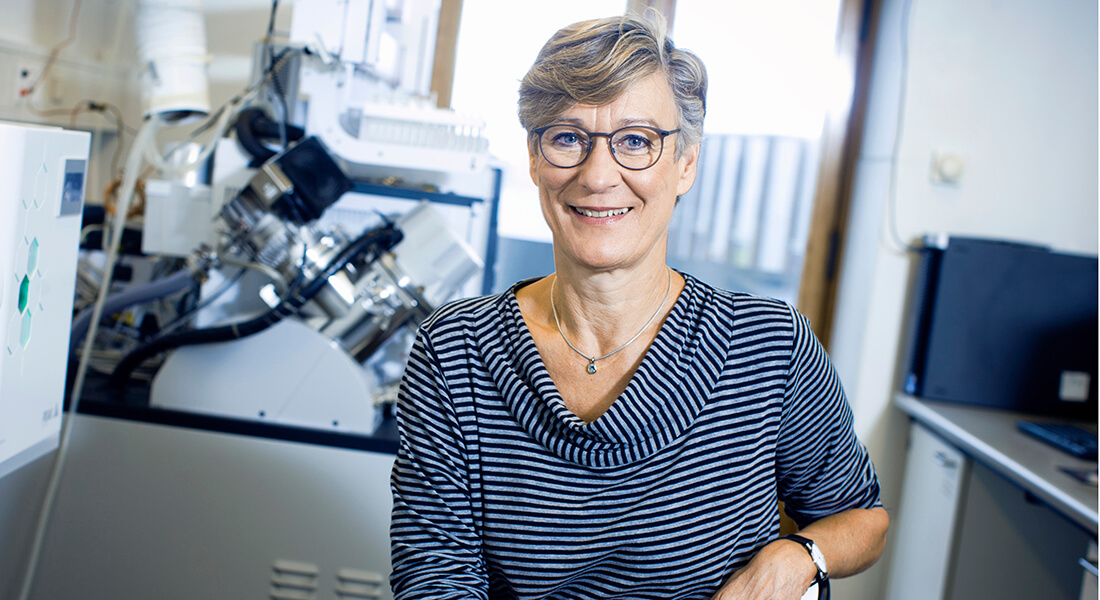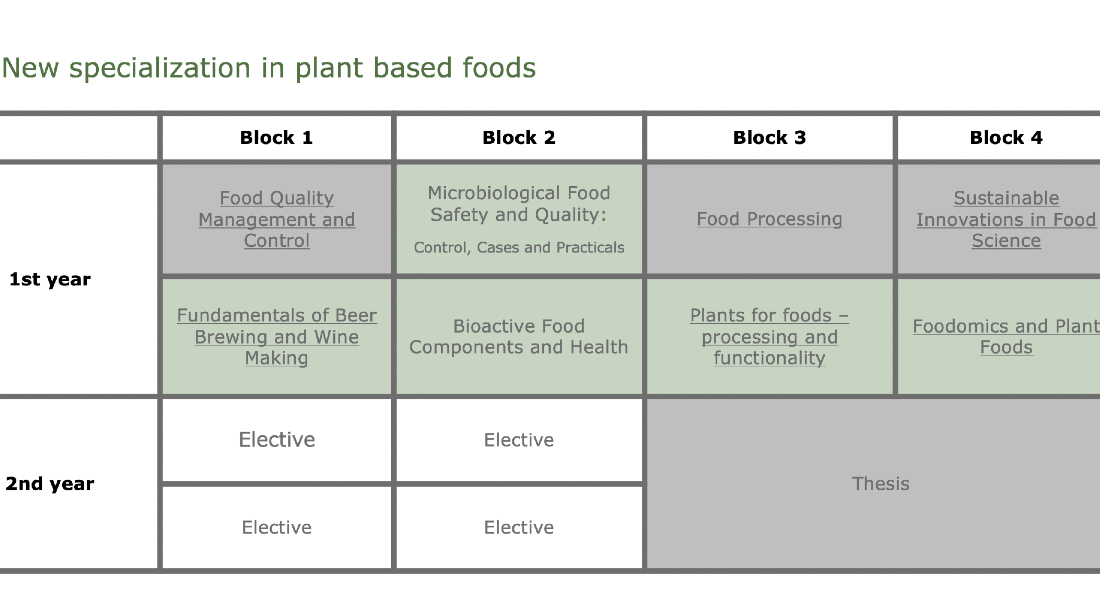University of Copenhagen Offers New Education in Plant-Based Foods
The Danish food sector is at the forefront globally, and as part of maintaining and preferably improving this position during the green transition, the University of Copenhagen has established a new specialization, a master in plant-based foods within the Food Science and Technology programme.

The green transition means that companies in the food and ingredient industry will produce and support technical solutions in the coming years to bring many more healthy, tasty, and sustainable plant-based foods to the market.
"The development requires a corresponding transformation of higher education in the food sector, which is the background for the new specialization," says Anna Haldrup, Head of the Department of Food Science at the University of Copenhagen (UCPH FOOD).
Currently, the University of Copenhagen (UCPH) educates graduates specializing in dairy, brewing, and a general specialization. However, starting from September 2023, the university will also educate graduates specializing in plant-based foods. And the programme is welcomed by the industry.
"We see a great interest from our members in developing tasty plant-based foods. But we also know that there is a lack of knowledge on how to hit the mark in terms of taste, texture, and umami, to create a product that consumers will choose. Therefore, we are very positive about UCPH's new specialization in plant-based foods. Denmark is a major food-producing country, and we are known for exports, high quality, and innovation. Hence, it is important to have education programmes that meet the needs of the food industry so that we can maintain and enhance our strong position, including in the plant-based sector," says Leif Nielsen, Director of DI Food (DI Fødevarer).
He is supported by Vice President Anna Skriver from Chr. Hansen:
"With the climate crisis, a food system under pressure, and a rapidly growing population, there is no doubt that the appreciate for plant-based foods will only increase in the coming years, and so will the need for professionals with skills in this specific field," says Anna Skriver.
When it comes to a much higher degree of utilizing plants for food instead of feed, the coming years pose a number of challenges that need to be addressed.
"For example, we know a great deal about starter cultures for yogurt and cheese, but now we also need to produce starter cultures for plant-based alternatives, as well as a range of other products that are unfamiliar to us today. The plant-based ingredients may have been bred for feed purposes and not for food, which is why knowledge from food research needs to go back to the breeders. There is already tremendous development happening in this field, and companies need these employees if we are to maintain Denmark's international status in the food sector," says Anna Haldrup.
The education formalizes an existing plant-based track
Anna Haldrup emphasizes that specialists in plant-based foods have already been educated at UCPH FOOD in recent years, but the programme has not been formalized.

Anna Haldrup is the Head of the Department of Food Science at the University of Copenhagen (UCPH FOOD). Photo: Claus Boesen.
"Many students have created their own education by taking elective courses and writing theses on the subject. However, with the new specialization, we tailor a direction within the Food Science and Technology master's programme so that students do not have to assemble their own curriculum if they are interested in plant-based foods," she says.
The programme is structured so that students can complete their specialization with either 30 or 45 ECTS credits, preferably in collaboration with a company.
"In addition, we encourage students to study abroad for six months, as it is also something that companies appreciate, so it is good to have on their CV," says Anna Haldrup.
Structure of the programme
After the changes, which will take effect for students starting the programme in September 2023, the following specializations can be pursued in the master’s programme in Food Science and Technology:
Specialization in Brewing (Brewmaster programme) - the courses are relatively fixed. Students write a thesis worth 30 ECTS, with 15 ECTS dedicated to elective courses.
Specialization in Dairy (Dairy Engineering programme) - here, students have a bit more flexibility and can, for example, choose to undertake a larger thesis worth 45 ECTS instead of two elective courses worth 15 ECTS and a thesis worth 30 ECTS.
General specialization, which allows for a significant degree of freedom in course selection, enabling students to choose the focus of their education. Examples of directions include fermented foods and food safety.
Specialization in Plant-Based Foods - provides students with a similar freedom to choose courses as in the Dairy specialization. All compulsory courses are completed in the first year, allowing students to either undertake a larger thesis worth 45 ECTS or study abroad during the second year of the programme.

New specialization in plant-based food
Students who have completed a bachelor’s degree in food and nutrition at the University of Copenhagen and chosen an internship in a company that produces plant-based foods become food engineers. Afterward, they can pursue a master’s degree in food science and technology with a specialization in "plant-based Foods."
Alternatively, one can pursue a master’s degree in food science and technology and specialize in plant-based Foods with a relevant bachelor's degree from Aarhus University, DTU, or abroad.
Read more about the Plant-Based Foods specialization.
The plant-based foods specialization was approved by the academic board of the Faculty of Science at the University of Copenhagen in late 2022. It consists of courses that already exist but is structured in a new, unique way that collectively focuses on plant-based and sustainable food production. For example, two of the courses are offered by other departments.
The following courses are compulsory for the specialization in Plant-Based Foods:
- Plants for Food Processing and Functionality
- Microbiological Food Safety and Quality
- Foodomics and Plant Foods
- Bioactive Food Components and Health
- Fundamentals of Beer Brewing and Wine Making - Biochemistry, Organisms, and Omics Techniques
Additionally, the following courses are compulsory for all students in the Master's programme:
- Food Quality Management and Control
- Food Processing
- Sustainable Innovation in Food Science
In addition, four elective courses are required.
If students choose to undertake the larger thesis worth 45 ECTS, they will omit two elective courses.
Contact
Head of the Department of Food Science at the University of Copenhagen (KU FOOD), Anna Haldrup, anna.haldrup@food.ku.dk
or
Communications Officer at KU FOOD, Lene Hundborg Koss, lene.h.koss@food.ku.dk
